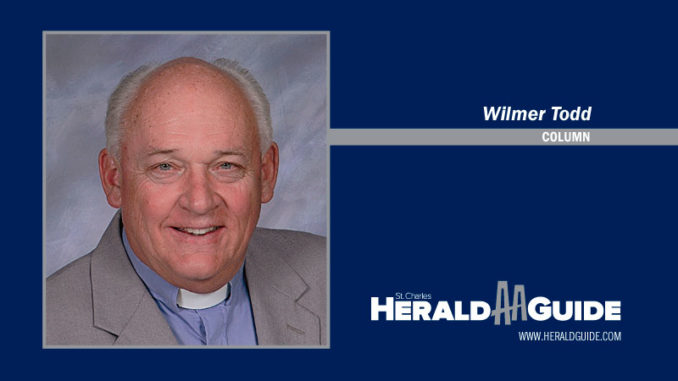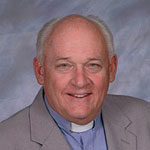
What word or phrase would best describe the American spirit? “Rugged individualism” would probably be a popular answer. We see this in those old western movies when the good guy stands in the middle of town, ready to take on the gang of outlaws who are coming to town.
The “enterprising spirit” might be another answer. It champions the people who leave steady jobs to start their own beauty parlor, corner grocery, local hardware, or high-tech business. It’s another side of the rugged individualist. As Americans we are attracted to the solitary heroes.
However, this is not the way Jesus built the church. Each of us must come to Christ by his or her own independent choice and each of us must build a personal relationship with God. Still, the church is not a collection of rugged individualists. It’s a family, a group of people united in Christ. That is the way it started, and that is the way it has continued for 2,000 years.
Jesus could easily have been a solitary figure. When he came to John to be baptized, he came alone. Then, he went out, very much alone, into the wilderness to be tempted. At this point, Jesus has all the markings of a rugged individualist.
However, the next thing Matthew tells us about Jesus is that when he “heard that John had been arrested, Jesus withdrew into Galilee.” What was going through Jesus’ mind at that point? It seems that he reasoned that John’s fate could very soon become his own. His ministry was only beginning but if Herod could arrest John so easily, he could end his own ministry.
So, Jesus left his hometown of Nazareth and moved to Capernaum. Matthew says that this was to fulfill Isaiah’s prophecy that it would be in the land of Zebulon and Naphtali that the light of God’s Messiah would shine. Having learned that Herod had arrested John the Baptist, there is an urgency in Jesus’ movements. Time was of the essence.
Matthew tells us, “Jesus began to proclaim, ‘Repent, for the kingdom of heaven has come near.’” I think our Lord sensed this “nearness” with new urgency, so he knew he had to declare it. However, that was not enough. He was not content to be hurrying about with this insistent proclamation. He must do more and he did. He began to gather a community.
As Jesus walked by the Sea of Galilee, he noticed the two brothers, Simon and Andrew, people who fished for a living. He called them to follow him. Then, continuing along the shore, he saw another pair of brothers, James and John. Again, he called them to follow him, and they did. Jesus was no longer solitary. He had established a community.
When Jesus called these four fishermen who had agreed to follow him, the Church began. The scriptures later tell us that we are the church, the Body of Christ, his presence in the world.
Why did Jesus choose these particular persons? From a very human point of view, most of us will recognize that he chose some unlikely persons. They were not the wisest, mightiest or noblest persons alive. Yet, Jesus knew he would have to work with whomever would say “yes.”
That is the very method God uses. God could very well have saved the world by divine edict, or by approaching us directly through the Holy Spirit, without relying on these human, imperfect mediators. It seems such an approach would have been less cluttered and more efficient.
Yet, God has chosen to carry on his work through human beings – fishing people, tax collectors, farmers, computer specialists, homemakers, oil workers, athletes and professors. It’s a motley crew. It is God’s own method, and it only works if you and I are willing to say “yes” to his call. Then we can take our place in his family and continue to do Jesus’ work.


I am not in agreement with stating Jesus was in a hurry to get to John the Baptist – to make a statement like that i.plies Jesus was “worried” or “in fear”. Next and although your opinion- I do not believe God seeks the weakest or most “unlikely” as you put it – rather, he seeks the willing – From “every walk of life”. As I. My circumstance – I could say choosing the sinners or poor is the way to go because they can see through the politics and are either not scared or have nothing to lose as opposed to the many who have homes or property at stake- but still even the richest people have their personal miseries, therefore I am not in agreement Jesus chose poor because they were most likely to follow him – I almost feel as though that is an insult.